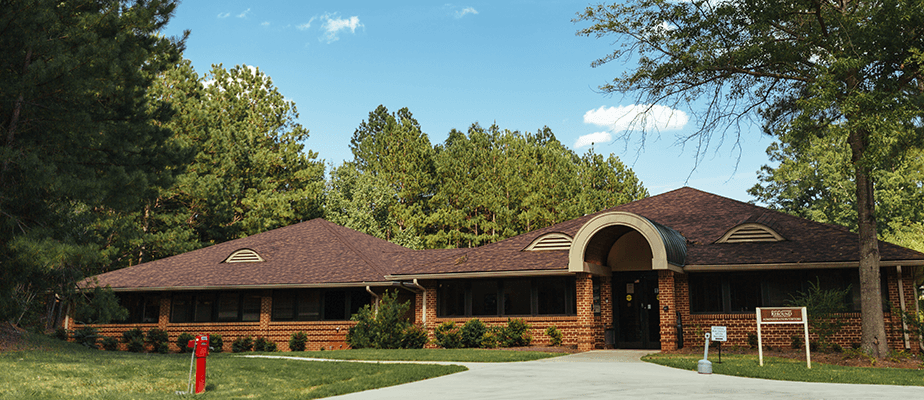Depression is one of the most common mental illnesses, impacting the lives of over 34 million children, teens, adults, and older adults in the United States each year. While this mental health disorder frequently impacts older adults, the signs and symptoms often go overlooked.
More About Late-Onset Depression
Learn more about late-onset depression
Late-onset depression is diagnosed when a person aged 65 or older develops depression for the first time in his or her life.
While late-life depression may be the result of a significant loss or losses, it’s important to note that grief following the death of a loved one is very normal. Grief differs from depression in that it only occurs for a limited length of time – usually less than two months. It’s also normal for feelings of grief to relapse and remit over a period of time. However, if a person experiences prolonged grief along with sadness, hopelessness, and worthlessness, it’s important to seek treatment.
Family, friends, and loved ones should be alert for signs of depression in older adults as serious depression can lead to disability, suicidal thoughts, and premature death. It’s often hard for clinicians and loved ones alike to diagnose clinical depression in older adults as many of the symptoms vary in the elderly. Many times, late-onset depression is mistaken for dementia; the depression is so severe and disabling that the person is unable to fully articulate their distress and seek help. Proper diagnosis and treatment is vital for older adults struggling with depression, as the elderly have a particularly high rate of suicide— higher than any other age group. However, with proper treatment, therapies, and medication, late-life depression can be successfully managed and treated, allowing an older adult to fully relish his or her later years.
Statistics
Statistics on late-onset depression
Depression is one of the most common disorders impacting over 34 million children, teens, adults, and older adults each year in the U.S. Of these, over 2 million adults (or about 6% of older adults) age 65 or older struggle with some form of depression. Unfortunately, many older adults believe the symptoms of depression are a normal part of aging, not a mental health concern. This can severely decrease the quality of life for an older adult.
What Causes Late-Life Depression?
Learn about the causes of and risk factors for late-onset depression
Depression is thought to be the result of an interplay of a variety of genetic, environmental, and physical causes and related risk factors. Some of the most commonly noted reasons for the development of late-life depression include:
Genetic: Older adults who have a family member who struggled with depression are at a greater risk for developing late-onset depression. However, it’s worth noting that not all older adults who develop depression have a family history of the disorder.
Physical: Late-onset depression may be triggered by physical illnesses that occur in late-life, such as Parkinson’s disease, cancer, heart disease, and arthritis. In addition, brain imaging studies (such as MRIs and CT scans) of people who have depression show a marked difference in those who do not have depression. It’s generally believed that certain people have an imbalance in specific brain chemicals, called neurotransmitters, which play a role in mood regulation.
Environmental: There are a variety of stresses that affect older adults more than other age groups, such as the death of a long-time partner, financial troubles and concerns, development of chronic illnesses, decreased ability to care for oneself, and increasing social isolation. These stresses may trigger the development of depression in older adults.
Risk Factors:
- Polypharmacy – the usage of a variety of prescription medications to treat a number of chronic illnesses
- Being female
- Increasing age
- Delayed grief from the loss of loved ones and independence
Signs of Late-Life Depression
Signs and symptoms of late-onset depression
The symptoms of late-onset depression are often different than those noted in younger people, which can make diagnosing more of a challenge. The symptoms of depression in later life can be extremely debilitating and even, in dire cases, life-threatening, which is why early prevention, identification, and treatment of late-onset depression is so important. Friends, loved ones, and family should watch for the following signs and symptoms of late-life depression and encourage loved ones to seek treatment if symptoms last longer than two weeks.
Symptoms of late-onset depression may include:
Behavioral symptoms:
- Withdrawing from once-enjoyed activities
- Preferring to spend time alone
- Pacing or fidgeting
- Excessive fearfulness
- Decreased ability to care for oneself
Physical symptoms:
- Changes in appetite
- Clinically significant changes in weight
- Physical pains without any notable medical cause
- GI symptoms – nausea, vomiting, diarrhea
- Headaches
- Changes in sleeping patterns – insomnia or hypersomnia
- Significant reduction in energy without known cause
- Fatigue
Cognitive symptoms:
- Decreased ability to think clearly
- Increasing, significant memory loss
- Inability to make decisions
- Frequent thoughts of death or suicide
Psychosocial symptoms:
- Overwhelming sadness
- Increased irritability
- Agitation
- Increased anxiety
- Outbursts of anger
- Inappropriate feelings of guilt
- Feeling empty inside
Effects of Late-Life Depression
The effects of late-onset depression
Older adults are less likely to seek treatment for psychiatric illnesses like late-onset depression. If left untreated or undiagnosed, older adults struggling with depression are at greater risk for developing long-term complications of the disorder. The complications and effects of late-onset depression include:
- Worsening emotional wellbeing
- Worsening of physical illnesses
- Increased physical complaints
- Significant distress
- Substance abuse and addiction
- Medical complications
- Significant disability
- Suicidal thoughts and behaviors
- Increased morbidity
Co-Occurring Disorders
Late-life depression and co-occurring disorders
Late-onset depression often accompanies other types of medical and mental health disorders. Some of the most common co-occurring disorders include:
- Personality disorders
- Cerebrovascular disease
- Chronic medical conditions
- Anxiety disorders
- Schizophrenia


















